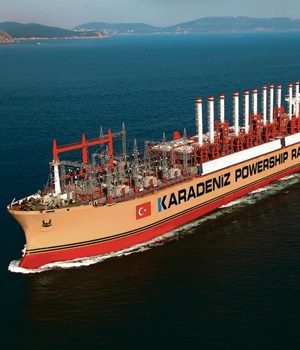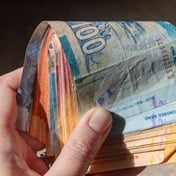
Johannesburg - Despite a serious push from powership and barge operators to use floating power stations as a stopgap for South Africa’s power crisis, operators have been told to get in line with a host of companies offering to help South Africa overcome its energy crisis.
Eskom confirmed this week that it had been approached by a number of potential emergency power suppliers, including those with powerships and barges. But it said it did not have the authority to procure power from any independent power producer.
Earlier this year, a leaked letter from ousted Eskom chair Zola Tsotsi to the Minister of Energy Tina Joemat-Pettersson, sung the praises of powerships as a quick solution to the country’s short-term power shortfall. But Tsotsi’s fall from grace has not done the powership companies any favours.
The management crisis at Eskom has shifted the decision making to the department of energy, which has not made any move to pursue a deal with the companies.
In April, the department’s deputy director-general for policy, planning and clean energy, Ompi Aphane, said the department had work streams looking at options such as power barges and powerships, but that no decision had been made. Neither Eskom nor the department wanted to reveal who else they were talking to.
An Eskom spokesperson said: “As the right with regard to the procurement of power vests with the department of energy, they have all been referred to the department’s anticipated gas-fired power procurement programme.”
The family-owned Turkish conglomerate Karadeniz is one of the operators pushing for an agreement with South Africa. A deal to provide the country with power would be the most lucrative piece of business for its emerging powership subsidiary Karpowership.
Karpowership made presentations to Eskom and the energy department earlier this year. It said its powerships could replace the current expensive diesel-powered turbines generation and save Eskom R6.3bn annually.
Diesel costs are the key to the pitch. Instead of the turbines generally used by diesel generators, the ships are carrying reciprocating engines. They resemble giant car engines with pistons and burn heavy fuel oil (HFO), an unloved refining by-product traditionally used to fuel ships.
This allows it to generate power at tariffs below what it costs Eskom to run its expensive diesel-powered open-cycle gas turbines.
Karpowership’s sales director Patrick O’Driscoll said the ships should be able to slot easily into Eskom’s existing independent power producer programmes, docking outside Saldanha, Coega, Cape Town, Richards Bay or Port Elizabeth.
But the cost-saving comes at an environmental price due to the dirty fuels used.
Karpowership said the HFO was only a “bridging” fuel until a reliable supply of cleaner fuels becomes available. “In the case of HFO operations, we comply all local and international environmental standards,” it said.
Proponents of powerships say it is an ideal short-term replacement for Eskom turbines. Eskom intends to convert the turbines using natural gas, but have put the plans on hold because they need turbines to run constantly in the wake of South Africa’s electricity crisis.
According to Karadeniz, the ships can provide power at R1.70 per kilowatt-hour or less. This estimate is based on the use of HFO, but the ships could also run on more expensive, cleaner fuels.
The diesel turbines cost R2.30 while Eskom’s average generation cost is 74c per kwh. Power from the country’s Renewable Energy Independent Power Producer Procurement Programme, which Eskom is obliged to buy, costs on average R1.40 per kwh, but that is falling.
Karpowership recently signed an agreement with Ghana and also supplies 25% of Lebanon’s energy and about 16% of Iraq’s electricity.
It started as a small, land-based power contract with occupied Iraq after the US invasion in 2003, but it has not been smooth sailing for the powership business.
Its second contract, a $560m (R7bn) five-year-deal with Pakistan, exploded after a few months.
It started with the powerships allegedly failing to deliver the power contracted for, which Karadeniz blamed on the low quality of provided fuel and payment problems.
Pakistan claimed nonperformance penalties from the company, which it refused to pay, leading to a seizure of four powerships. After international arbitration, one of the ships was released, but Pakistan is still holding the others.
Karadeniz said it was still engaged in arbitration with Pakistan as a result of Pakistan’s contract breaches.
“We are claiming damages from Pakistan for its unlawful arrest of our powerships, among others,” it said.




 Publications
Publications
 Partners
Partners








